Community policing is a policing philosophy that aims to improve cooperation and integration between the police and the communities they serve. It has three key components: Community partnerships between law enforcement and community stakeholders; a problem-solving approach to proactively engaging public safety issues; and a process of organizational transformation to align agency personnel and resources in support of those partnerships and that approach.
The Office of Community Oriented Policing Services (COPS Office) is the component of the U.S. Department of Justice responsible for advancing the practice of community policing by the nation's state, local, territorial, and tribal law enforcement agencies through information and grant resources.
The COPS Office awards grants to hire community policing professionals, develop and test innovative policing strategies, and provide training and technical assistance to community members, local government leaders, and all levels of law enforcement. Since 1994, the COPS Office has been appropriated more than $20 billion to help advance community policing.

COPS Directors Through the Years
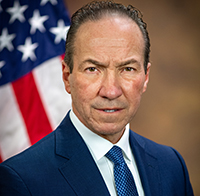 Current Director
Current Director
Hugh T. Clements, Jr. Hugh T. Clements, Jr. joined the Justice Department after nearly 40 years with the Providence Police Department in Providence, Rhode Island. Mr. Clements started his distinguished public safety career as a night Patrol Officer in Providence’s Uniform Division and became the department’s Chief in 2012. He served as Director of the COPS Office from 2022 to 2024.
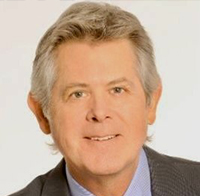 Joe Brann
Joe Brann
The first COPS Office Director was Hayward (California) Police Chief Joe Brann. He was selected by President Bill Clinton to lead the extraordinary and historic reform of American policing toward community-oriented policing. Chief Brann led the office from 1994 to 1999.
 Tom Frazier
Tom Frazier
Tom Frazier served as the Director of the COPS Office from 1999 to 2001. He came to the COPS Office from Baltimore, Maryland, where he was the Police Commissioner. Prior to that, Commissioner Frazier had been Deputy Chief in San Jose, California.
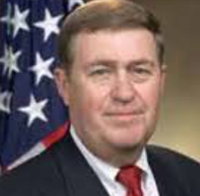 Carl Peed
Carl Peed
Carl Peed was the longest-serving COPS Office Director, leading the office from 2001 until 2009. Before that, he served with the Fairfax County (Virginia) Sheriff’s Office for more than 20 years.
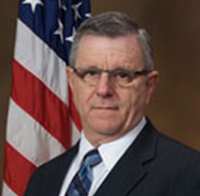 Bernard Melekian
Bernard Melekian
Bernard Melekian was the COPS Office Director from 2009 to 2013. Before coming to the COPS Office, he served for 36 years in local law enforcement, including serving as Police Chief for the city of Pasadena, California, for 13 years.
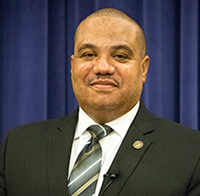 Ronald L. Davis
Ronald L. Davis
Ronald L. Davis served as Director of the COPS Office from 2013 to 2017. Chief Davis served more than eight years as Chief of Police of East Palo Alto, California, and 20 years with the Oakland (California) Police Department.
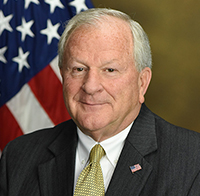 Phil Keith
Phil Keith
Phil Keith served as the Director of the COPS Office from 2017 to 2021. He has more than 50 years of law enforcement experience, including serving on the mayoral task force that worked with President Bill Clinton to create the COPS Office.

COPS Office Timeline
View our COPS Office timeline highlights here.
TOTAL COPS OFFICE APPROPRIATION FOR FISCAL YEAR 1994: $148.4 MILLION
- The Violent Crime Control & Law Enforcement Act passes both the House and the Senate, authorizing an $8.8 billion expenditure over six years. The Office of Community Oriented Policing Services (COPS Office) is created to distribute and monitor these funds.
- The COPS Office launches three new programs: Accelerated Hiring, Education, And Deployment (AHEAD), Funding Accelerated for Smaller Towns (FAST), and Making Officer Redeployment Effective (MORE).
- The COPS Office awards $200 million to 392 agencies for 2,700 additional community policing professionals.
TOTAL COPS OFFICE APPROPRIATION FOR FISCAL YEAR 1995: $1.3 BILLION
- The COPS Office funds 25,000 more officers.
- The COPS Office announces the Universal Hiring Program (UHP), which incorporates FAST and AHEAD.
- The COPS Office awards grants totaling $10 million through the Youth Firearms Violence Initiative.
TOTAL COPS OFFICE APPROPRIATION FOR FISCAL YEAR 1996: $1.4 BILLION
- The COPS Office funds 52,000 officers through UHP.
- The COPS Office announces its Anti-Gang Initiative and Community Policing to Combat Domestic Violence Program.
TOTAL COPS OFFICE APPROPRIATION FOR FISCAL YEAR 1997: $1.42 BILLION
- The COPS Office publishes and releases the report Police Integrity: Public Service with Honor.
- COPS Office funding establishes a nationwide network of Regional Community Policing Institutes (RCPIs).
- The COPS Office announces its Problem-Solving Partnership Initiative.
TOTAL COPS OFFICE APPROPRIATION FOR FISCAL YEAR 1998: $1.633 BILLION
- The COPS Office has funded 75,000 new community policing professionals worldwide.
- The COPS Office introduces three new programs: Distressed Neighborhoods Pilot Project, Police Corps Program, and Small Communities Grant Program.
- The COPS Office launches the Methamphetamine Initiative, through which it awards $34 million throughout the fiscal year.
- The COPS Office awards a total of $38 million through its Technology Program.
TOTAL COPS OFFICE APPROPRIATION FOR FISCAL YEAR 1999: $1.46 BILLION
- The COPS Office announces its COPS in Schools (CIS) grant program, following a number of high-profile school shooting incidents.
- The COPS Office funds its 100,000th community policing professional in May of 1999.
- The COPS Office announces its Tribal Resources Grant Program (TRGP).
TOTAL COPS OFFICE APPROPRIATION FOR FISCAL YEAR 2000: $913 MILLION
- The COPS Office launches its Police as Problem-Solvers and Peacemakers program, through which it awards $1 million to five law enforcement agencies.
- The COPS Office announces its Justice-Based After School (JBAS) and Value-Based Initiatives (VBI) programs.
- The COPS Office awards $12 million to 41 state law enforcement agencies for the purchase of 2,900 in-car cameras.
TOTAL COPS OFFICE APPROPRIATION FOR FISCAL YEAR 2001: $1.042 BILLION
- The COPS Office launches two new series of publications: COPS Innovations and Problem-Oriented Policing Guides.
- The COPS Office awards $600,000 through JBAS to seven law enforcement agencies.
- The COPS Office supports the NYPD and Arlington County (VA) Police Department as they respond to the September 11 attacks.
TOTAL COPS OFFICE APPROPRIATION FOR FISCAL YEAR 2002: $1.1 BILLION
- The COPS Office awards more than $70 million through the Methamphetamine Initiative.
- The COPS Office awards more than $154 million through the Technology Program.
- The COPS Office announces $128 million in UHP grants that allow 367 agencies to hire 1,750 community policing professionals.
2003
TOTAL COPS OFFICE APPROPRIATION FOR FISCAL YEAR 2003: $977 MILLION
- The COPS Office launches the Homeland Security Overtime Program (HSOP) and awards $59.6 million to 294 law enforcement agencies throughout the U.S.
- The COPS Office creates the Interoperable Communications Technology Program. Through this program, the COPS office awards $66.5 million to 14 communities to develop integrated communications networks among emergency response agencies within metropolitan statistical areas.
- The COPS Office announces $178 million in UHP funding to 364 agencies to hire 2,334 community policing professionals.
- The COPS Office announces more than $41 million in CIS grants. These grants support 152 law enforcement agencies in the hiring of 348 school resource officers.
TOTAL COPS OFFICE APPROPRIATION FOR FISCAL YEAR 2004: $748 MILLION
- The COPS Office awards $47.2 million in grants through the Universal Hiring Program to be used by local police and sheriff’s departments to hire additional officers. The grants are awarded to 178 law enforcement agencies to hire 905 community policing officers.
- The COPS Office allocates $4.6 million in funding for 19 jurisdictions to combat methamphetamine. The funds are awarded under the COPS Methamphetamine Training Initiative, which assists law enforcement agencies in developing and enhancing comprehensive methamphetamine eradication strategies that emphasize training and technical assistance.
- More than $82 million in grants is awarded to 23 communities in 17 states to develop interoperable communication networks. The grants cover the purchase of communication equipment, enhancements to communication infrastructures, data information sharing systems, and project management expenses associated with upgrading interoperable communication systems.
- The COPS Office awards $24 million to 114 tribal law enforcement agencies in 24 states under the COPS Tribal Resources Grant Program.
TOTAL COPS OFFICE APPROPRIATION FOR FISCAL YEAR 2005: $598 MILLION
- The COPS Office awards more than $193 million to support tribal law enforcement agencies and community court initiatives.
- The COPS Office announces $10.2 million to fund the hiring of 65 community policing officers and 44 school resource officers.
- The COPS Office awards $14.7 million in grants to 187 local law enforcement agencies through the Secure Our Schools program.
- The COPS Office announces $92.7 million to 26 law enforcement agencies to develop interoperable data and communication networks.
TOTAL COPS OFFICE APPROPRIATION FOR FISCAL YEAR 2006: $472 MILLION
- The COPS Office announces $14.8 million in grants to 174 local law enforcement agencies to enhance school safety.
- The COPS Office awards more than $12 million in grants to support tribal law enforcement initiatives.
- The COPS Office announces $8.8 million in grants to enhance interoperable communication networks.
TOTAL COPS OFFICE APPROPRIATION FOR FISCAL YEAR 2007: $541 MILLION
- The COPS Office announces $49.5 million in grants to fight methamphetamine.
- The COPS Office awards $159 million to establish integrated voice and data communication networks in 37 metropolitan statistical areas across 25 states and one U.S. territory.
- The COPS Office announces $14.7 million in support of tribal law enforcement initiatives.
- The COPS Office awards $14.8 million in grants to 152 local law enforcement agencies to enhance school safety.
- The COPS Office distributes its millionth technical assistance publication to the law enforcement field.
TOTAL COPS OFFICE APPROPRIATION FOR FISCAL YEAR 2008: $587 MILLION
- The COPS Office kicks off the Child Sexual Predator Program (CSPP) with nearly $16 million in grant funding. Congress created the CSPP to locate, arrest, and prosecute child sexual predators.
- For the first time in three years, the COPS Office offers its Universal Hiring Program to help law enforcement agencies hire community policing officers.
TOTAL COPS OFFICE APPROPRIATION FOR FISCAL YEAR 2009: $1.55 BILLION
- The COPS Office awards $1 billion in Recovery Act funding to hire, rehire, or retain nearly 5,000 law enforcement positions.
- In record time, the COPS Office develops a new online application system and responds to 17,626 telephone calls and 4,300 emails in order to make awards in July of 2009.
- Demand for hiring funding is unprecedented in 2009, as the COPS Office receives over 7,200 applications requesting more than $8 billion.
TOTAL COPS OFFICE APPROPRIATION FOR FISCAL YEAR 2010: $791 MILLION
- On the 16th anniversary of the COPS Office, the agency moves into the new 2CON building with several other DOJ components, including the Office on Violence Against Women.
- The Coordinated Tribal Assistance Solicitation (CTAS) is created and combines individual funding applications for OJP, OVW, and COPS Office tribal criminal justice assistance programs, allowing grantees to seek funding for all of their criminal justice needs through one application.
TOTAL COPS OFFICE APPROPRIATION FOR FISCAL YEAR 2011: $495 MILLION
- For the first time in the program’s history, COPS Hiring Program applicants are asked to identify a public safety problem and describe in detail how they will use proven community policing strategies to address this problem.
- Grantees that receive a COPS Hiring Program grant are required to take the Community Policing Self-Assessment Tool at the beginning and the end of the grant, which allows for a comprehensive and objective picture of partnership, problem solving, and organizational change successes, as well as areas that agencies may consider improving upon.
- The COPS Office has provided training to more than 600,000 law enforcement practitioners.
TOTAL COPS OFFICE APPROPRIATION FOR FISCAL YEAR 2012: $198.5 MILLION
- For any new hire positions awarded under the 2012 COPS Office Hiring Program, grantees are required to hire military veterans that served after 9/11 for a period of no less than 180 days and have been honorably discharged.
- In November 2012, the COPS Office announces the completion and delivery of an eight-month Collaborative Reform review of the Las Vegas Metropolitan Police Department’s use of force policies and practices. The report lists 75 findings and recommendations regarding officer-involved shootings and other use of force issues, and quickly becomes a key resource for other law enforcement agencies facing similar concerns.
TOTAL COPS OFFICE APPROPRIATION FOR FISCAL YEAR 2013: $222.5 MILLION
- In 2013, priority consideration for COPS Hiring Program funding is given to agencies that requested officer positions in order to deploy school resource officers, committed to hiring military veterans, or focused on the reduction of homicide and gun violence.
- The COPS Office awards nearly $500,000 to the Virginia Tech Family Outreach Foundation to develop a new comprehensive school safety model and training curriculum that will be used to guide and increase the effectiveness of school safety programs.
- The COPS Office has now disseminated more than two million training and technical assistance publications to the law enforcement field.
TOTAL COPS OFFICE APPROPRIATION FOR FISCAL YEAR 2014: $214 MILLION
- In April 2014, the COPS Office convenes a forum titled “Strengthening the Relationship between Law Enforcement and Communities of Color,” in which community leaders, law enforcement executives, and civil rights organizations address challenges, share promising strategies, and discuss creative and actionable solutions to building trust between communities of color and law enforcement.
TOTAL COPS OFFICE APPROPRIATION FOR FISCAL YEAR 2015: $208 MILLION
- On December 18, 2014, President Barack Obama signs an Executive Order establishing the President's Task Force on 21st Century Policing. The Task Force Members seek expertise from stakeholders and input from the public through Listening Sessions, teleconferences, and written comments as they work to identify best practices and make recommendations to the President. The Task Force submits an initial report to the President on March 2, 2015 and releases the final report on May 18, 2015.
TOTAL COPS OFFICE APPROPRIATION FOR FISCAL YEAR 2016: $212 MILLION
- In May 2016, the COPS Office launches the Advancing 21st Century Policing Initiative, which provides hands-on assessments and technical assistance to a cohort of law enforcement agencies that have already made strides in advancing Task Force recommendation implementation. The project also produces guiding materials for other agencies to use in their efforts to advance those policing practices.
TOTAL COPS OFFICE APPROPRIATION FOR FISCAL YEAR 2017: $221.5 MILLION
- In March 2017, Attorney General Jeff Sessions issues a memo that all DOJ agencies are to be reviewed thoroughly to ensure they are properly aligned with the Administration’s priorities. In September 2017, the COPS Office announces sweeping changes to its Collaborative Reform Initiative for Technical Assistance.
TOTAL COPS OFFICE APPROPRIATION FOR FISCAL YEAR 2018: $300.5 MILLION
- The enactment of the Students, Teachers, and Officers Preventing (STOP) School Violence Act of 2018 authorizes the COPS Office Director to make grants available for coordination with law enforcement; training for local law enforcement officers to prevent student violence against others and self; metal detectors, locks, lighting, and other deterrent measures; technology for expedited notification of local law enforcement during an emergency; and any other measure that the COPS Office Director determines may provide a significant improvement in security.
TOTAL COPS OFFICE APPROPRIATION FOR FISCAL YEAR 2019: $303.5 MILLION
- Recognizing that good mental and psychological health is just as essential as good physical health for law enforcement officers to be effective in keeping our communities safe from crime and violence, the new COPS Office Law Enforcement Mental Health and Wellness Act (LEMHWA) program provides funding for training, peer mentoring, and mental health program activities for law enforcement officers.
TOTAL COPS OFFICE APPROPRIATION FOR FISCAL YEAR 2020: $343 MILLION
- After a three-year hiatus due to litigation issues, the COPS Office awards its 2018, 2019, and 2020 COPS Hiring Program funding, making grants totaling approximately $400 million to 605 law enforcement agencies across the nation to hire 2,761 additional full-time law enforcement positions.
TOTAL COPS OFFICE APPROPRIATION FOR FISCAL YEAR 2021: $386 MILLION
- Funding for the COPS Community Policing Development (CPD) Program is increased to $35 million, more than 500 percent over its funding levels in recent years, with Congressional direction to focus on key areas: microgrants; crisis intervention teams; de-escalation training; and accreditation.
TOTAL COPS OFFICE APPROPRIATION FOR FISCAL YEAR 2022: $511.7 MILLION
- The COPS Office Collaborative Reform Initiative is revamped and expanded to include a continuum of three distinct levels of technical assistance services—the continuation of the Collaborative Reform Initiative Technical Assistance Center (CRI-TAC), an updated Critical Response program, and an updated Organizational Assessments program.
TOTAL COPS OFFICE APPROPRIATION FOR FISCAL YEAR 2023: $662.9 MILLION
- In April 2023, at the request of the U.S. Attorney General, the COPS Office and the Bureau of Justice Assistance host a convening to review the current state of law enforcement recruitment and retention and explore ways they can be modernized to meet the needs of today’s agencies, communities, and workforce. The group pinpoints practices that may be contributing to hiring and retention difficulties in several areas, including eligibility, benefits and incentives, work/life balance and officer wellness, image and public relations, and pipeline programs. The resulting publication includes proposed solutions for each of these areas that can be implemented at the agency level and also action steps that can be taken by local and state governments as well as the Federal Government to support and institutionalize these changes.
TOTAL COPS OFFICE APPROPRIATION FOR FISCAL YEAR 2024: $664.5 MILLION
- The COPS Office leads and authors the Department of Justice Critical Incident Review: Active Shooter at Robb Elementary School report. The report provides an accounting of the law enforcement response to this tragic May 2022 school shooting, including observations, recommendations, and resources to help agencies with their own planning and preparation.
 Official websites use.gov
Official websites use.gov Secure .gov websites use HTTPS
Secure .gov websites use HTTPS 














